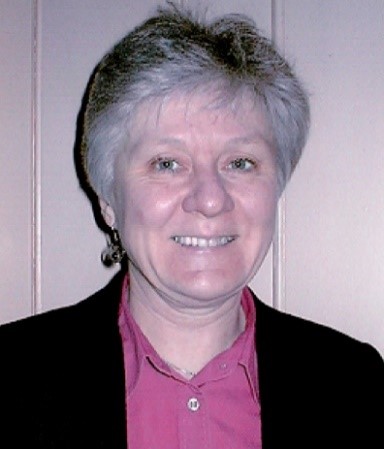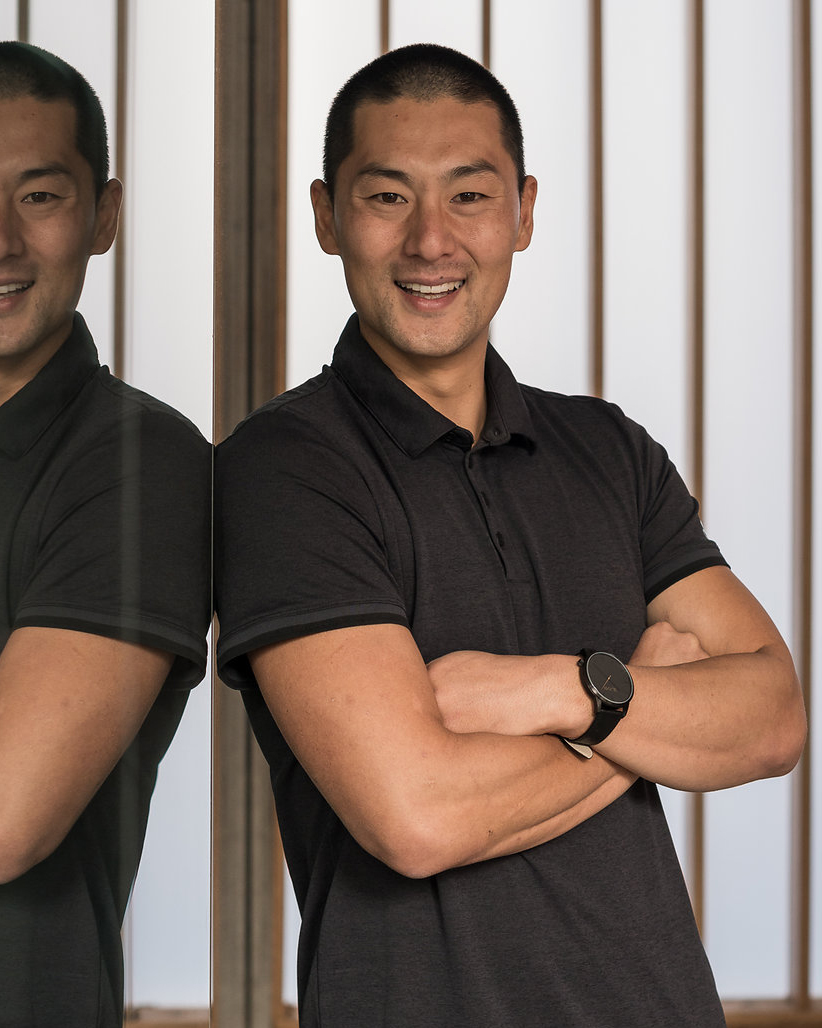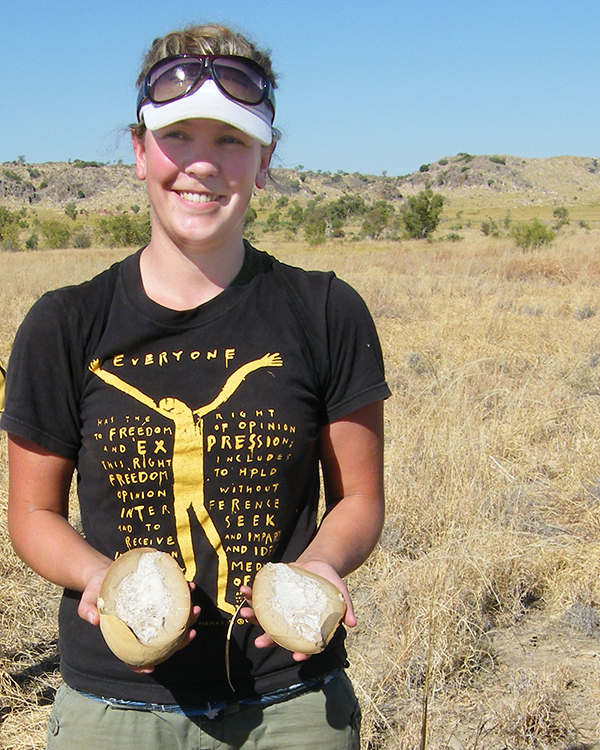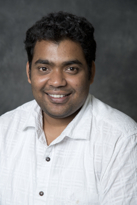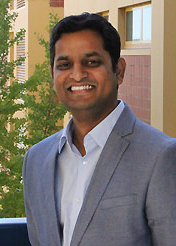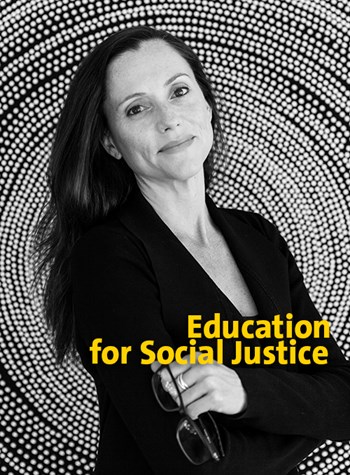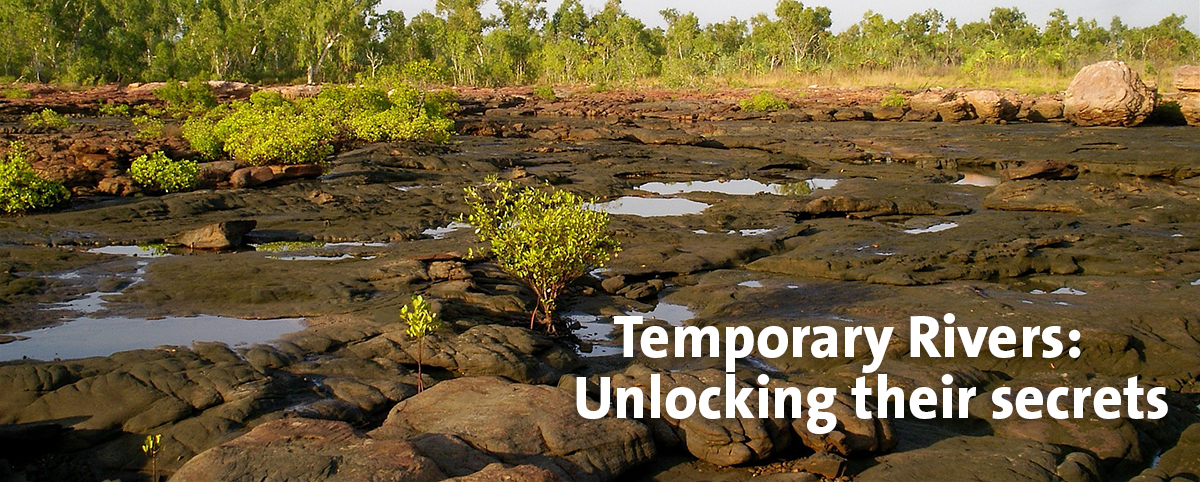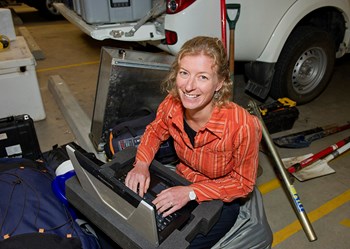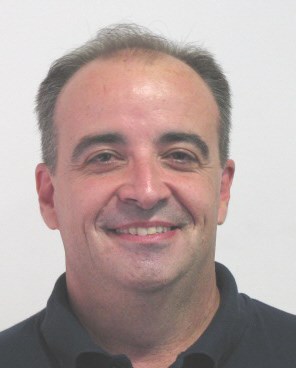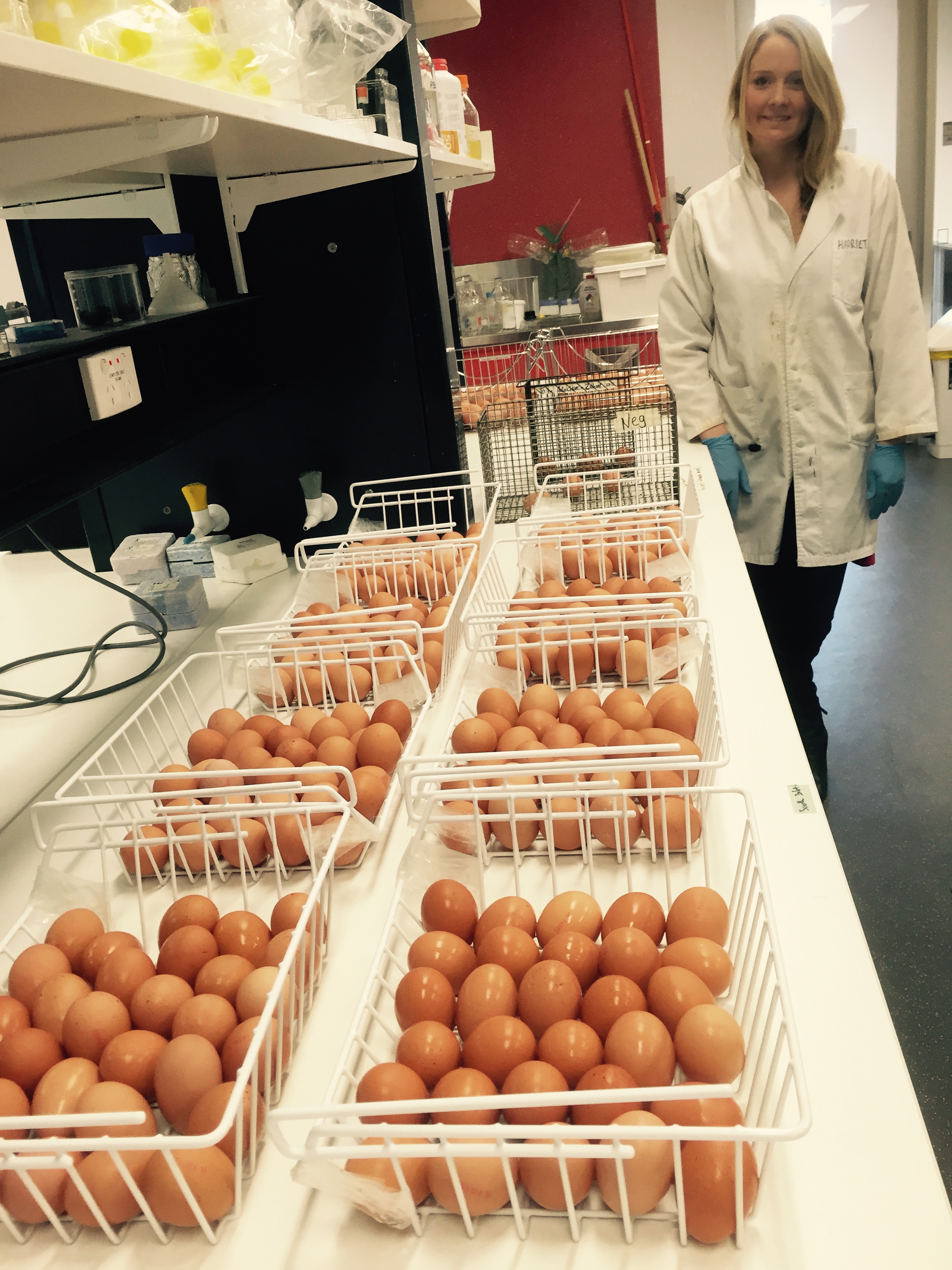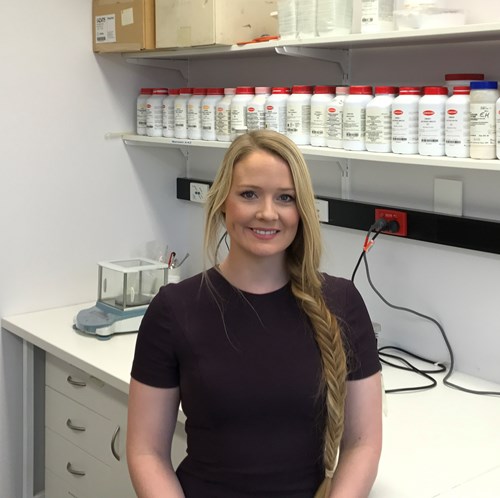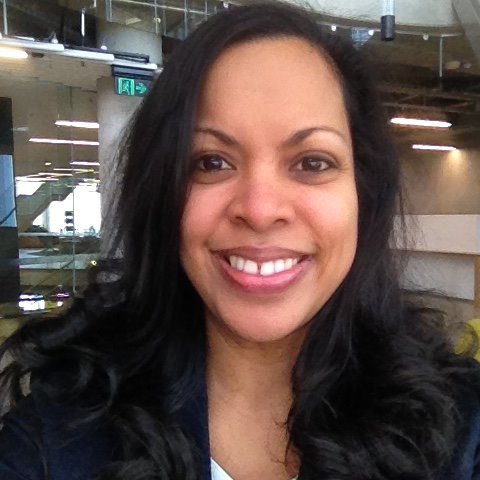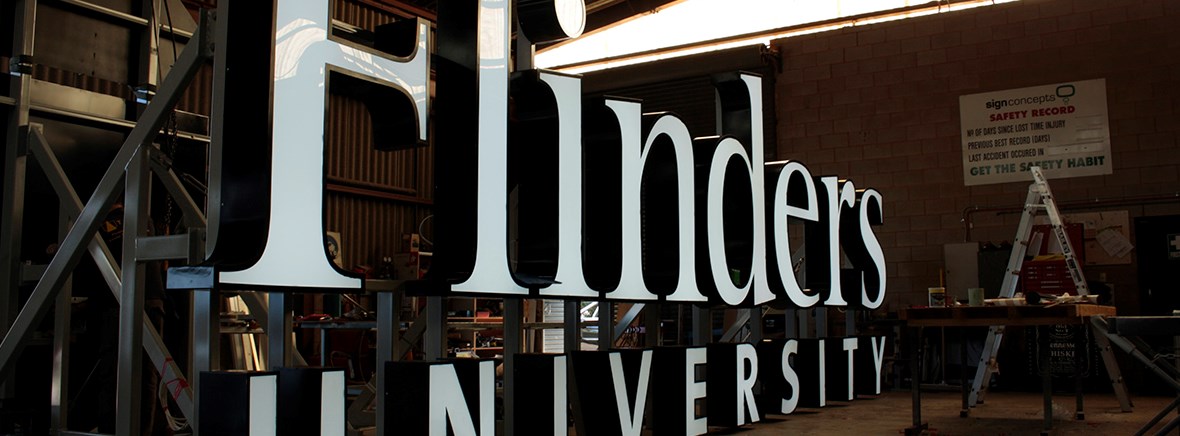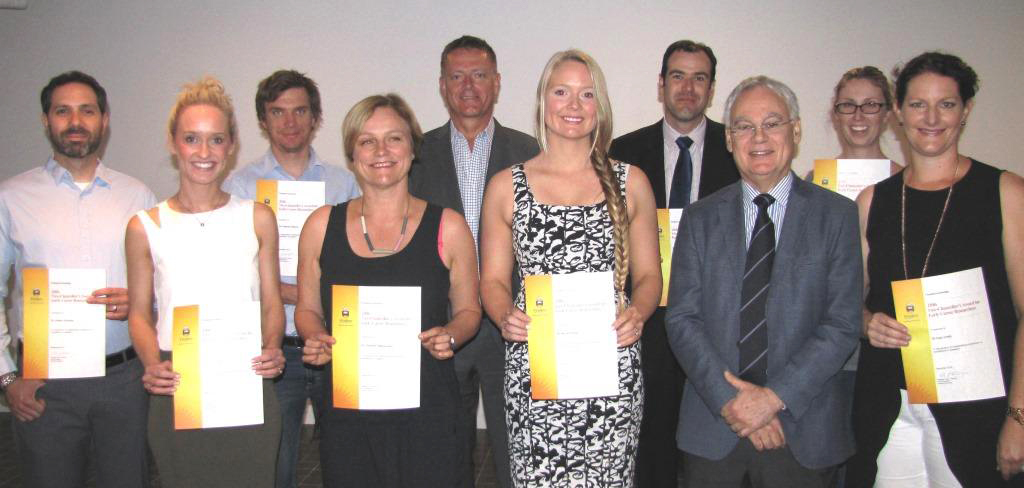Research Engagement and ImpactECR Spotlight - Dr Ben Lewis
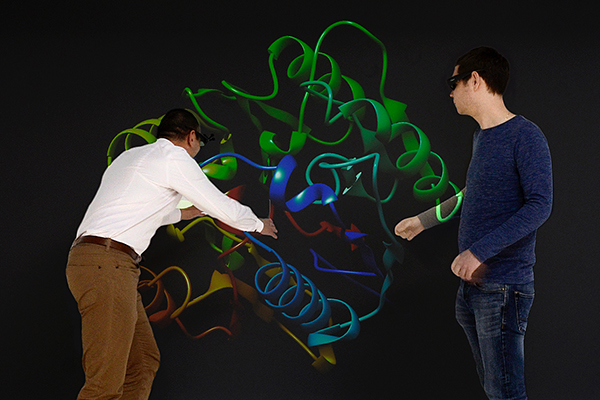
Ben and Dr Ian Henry, Leader of the Scientific Computing Facility at Max Planck Institute, investigating the structure of a new promising anticancer target generated by Ben in the MPI-CBG 3D virtual reality cave.
Taking the next step in his research career is what Dr Ben Lewis achieved by successfully applying for a 2018 Senior Research Fellowship in Medicine at the Technische Universität Dresden (Technical University of Dresden, TUD), Germany.
Only three Senior Research Fellows in Medicine were awarded in 2018, and of the 25 Senior Research Fellowships awarded by TUD in 2018, only three were from Australia.
Ben's interests are focused on using the 3-dimensional (3D) structure and chemical composition of enzymes to understand drug metabolism and to develop new drugs. As a Flinders Centre for Innovation in Cancer researcher, Ben is devoted to researching the biochemical and molecular processes involved in the initiation and progression of cancer and how these processes can be targeted for the design of new anticancer agents.
"I’ve been extremely fortunate to form a number of key collaborations at the Carl Gustav Carus University hospital and the Max Plank Institute of Molecular Cell Biology and Genetics [MPI-CBG], one of which has opened up a further collaboration in Italy with the Department of Experimental Medicine at the University of Perugia, from my time spent in Dresden," said Ben.
"I have already submitted one research grant with my German colleagues, but my real aim is to secure large Commonwealth funding through the NHMRC and secure some internal Flinders funding so I can establish a 'Structural Biology and Molecular Targets Laboratory'.”
Ben has published 40 articles, comprising 762 citations, with a h-index of 14. His principal areas of interest are breast cancer, prostate cancer, and metastatic melanoma research in addition to characterising the structure-function relationships of drug metabolizing enzymes.
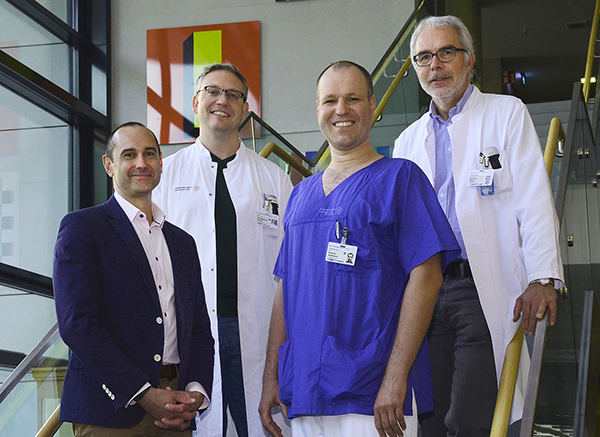
(Left to Right): Dr Ben Lewis, Prof Peter Spieth (Anesthesiology and Intensive Care; TUD), Assoc Prof Roman Rodionov (Internal Medicine and Angiology; TUD), and Prof Norbert Weiss (Director TUD Centre for Vascular Medicine)
Dr Ben Lewis
Dr Ben Lewis is a medical researcher at Flinders University whose interests are focused on developing innovative methods of drug therapy, including a gene directed pro-drug therapy model for targeted cancer treatment. Ben has been an integral part of the Department of Clinical Pharmacology at Flinders University since 2002 with his research focussed on the molecular determinants of diversity in drug and chemical metabolism. Ben completed his PhD in 2011 under the supervision of Flinders' Professor John Miners and was successively awarded a Flinders University Research Fellowship.
T: 8204 4031
E: ben.lewis@flinders.edu.au
Campus: Flinders Medical Centre
College: Medicine and Public Health
Role: Lecturer/researcher in Pharmacology
This is a feature for Inspiring Research where we profile Flinders’ Early Career Researchers (ECRs) in our ECR Spotlight. This initiative appears regularly and aims to connect our research community and strengthen research communications within the University. You will get insight into who our ECRs are and how their research and achievements are making a difference.
The featured ECRs welcome dialogue, debate, and conversation and we hope that it may shape future intra-, inter- and/or trans-disciplinary collaboration with Flinders’ colleagues. Please feel free to comment on their spotlight, and/or contact them directly. Also, you can contact the ECR Spotlight coordinator, Dr Marina Delpin, with your queries and comments.




